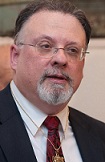 En términos generales, España no suele merecer una especial atención en los medios de comunicación internacionales. No faltan razones para esa circunstancia. Aunque parte de la OTAN y de la Unión Europea, España no es uno de los miembros más importantes ni destacados. Podría mantener una proyección mayor en Hispanoamérica, pero, en términos generales, esa presencia no ha sido potenciada por gobiernos tanto de izquierdas como de derechas más atentos a no molestar al Coloso del norte y a respaldar las operaciones, no siempre ejemplares, de los empresarios españoles. A decir verdad, España suele ser noticia o bien en relación con el fútbol o en conexión con algún evento cultural o por la vida de la familia real. Precisamente por esa falta de repercusión, llama poderosamente la atención la manera en que se ha visto situada bajo el foco en las últimas semanas y no precisamente bajo una luz positiva. En este artículo, intentaré explicar las razones mediatas de esa atención y también apuntar a cómo el sistema político está experimentando una mutación que lo asemeja de manera creciente – y desdichada – al sistema chavista. En entregas sucesivas, espero mostrar la manera en que ese desarrollo está ya afectando a la libertad de expresión y de prensa, a la independencia de la administración de justicia y al tráfico de drogas internacional. Pero empecemos por los antecedentes de la situación actual.
En términos generales, España no suele merecer una especial atención en los medios de comunicación internacionales. No faltan razones para esa circunstancia. Aunque parte de la OTAN y de la Unión Europea, España no es uno de los miembros más importantes ni destacados. Podría mantener una proyección mayor en Hispanoamérica, pero, en términos generales, esa presencia no ha sido potenciada por gobiernos tanto de izquierdas como de derechas más atentos a no molestar al Coloso del norte y a respaldar las operaciones, no siempre ejemplares, de los empresarios españoles. A decir verdad, España suele ser noticia o bien en relación con el fútbol o en conexión con algún evento cultural o por la vida de la familia real. Precisamente por esa falta de repercusión, llama poderosamente la atención la manera en que se ha visto situada bajo el foco en las últimas semanas y no precisamente bajo una luz positiva. En este artículo, intentaré explicar las razones mediatas de esa atención y también apuntar a cómo el sistema político está experimentando una mutación que lo asemeja de manera creciente – y desdichada – al sistema chavista. En entregas sucesivas, espero mostrar la manera en que ese desarrollo está ya afectando a la libertad de expresión y de prensa, a la independencia de la administración de justicia y al tráfico de drogas internacional. Pero empecemos por los antecedentes de la situación actual. 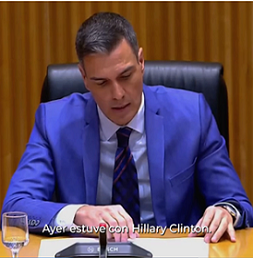
Hace unos días, el presidente del gobierno español, el socialista Pedro Sánchez provocaba una sorpresa internacional al anunciar que se retiraba durante cinco días para decidir si permanecía o no al frente del ejecutivo. La medida era desusada porque lo habitual es que alguien dimita o no, pero no lo es que para adoptar una decisión se retire cinco días a meditar. Algunos – como el autor de estas páginas – anunciamos que Sánchez no se marcharía y nos basamos para afirmarlo, entre otras cosas, en el precedente de Felipe González que voy a rememorar brevemente.
Corría el año 1979, y más concretamente el mes de marzo, cuando en España se celebraron elecciones generales. El Partido Socialista Obrero Español (PSOE) resultó la segunda fuerza política más votada, con casi cinco millones y medio de votos. Además, fue la segunda fuerza y la primera de izquierdas más representada en el parlamento, con un total de 121 escaños. Semejante resultado rayaba lo prodigioso porque el PSOE había sido casi inexistente durante el franquismo – a diferencia, por ejemplo, del PCE – y se había formado casi de la nada a la muerte de Franco. Apenas dos meses después, en mayo, el PSOE celebró su XXVIII congreso. El que entonces era secretario general del partido, Felipe González, estaba decidido a reconducir la marcha del PSOE en la dirección que le marcaban desde el extranjero focos de poder como la fundación Rockefeller, la masonería o la internacional socialista. Fue así como insistió en abandonar la línea histórica del PSOE y adaptarse a otra semejante a la de SPD alemán. Al negarse el congreso del partido – todavía muy marxista - a alinearse con Felipe González, éste presentó la dimisión y se marchó a su casa. A la mañana siguiente, muy temprano, una treintena de dirigentes del PSOE y de la Unión General de Trabajadores (UGT), el sindicato socialista, fueron convocados a una reunión de la que debía salir una comisión ejecutiva alternativa a Felipe González. En aquella reunión, después de que hizo acto de presencia Felipe González que había regresado al congreso del PSOE, el profesor Enrique Tierno Galván, presidente de honor del PSOE, informó de una llamada telefónica procedente de la embajada de Estados Unidos en España que le había informado del peligro de un golpe de estado militar si del congreso salía una ejecutiva escorada a la izquierda encabezada por él. De manera bien reveladora, en la reunión de los dirigentes socialistas se hallaban presentes los agregados laborales de las embajadas de Estados Unidos y Alemania así como el director de la Fundación Ebert que no desmintieron lo informado por Tierno Galván.
- Hits: 1659
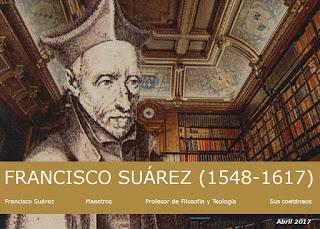
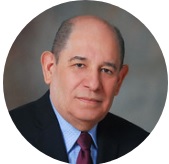 La libertad es un componente esencial del bien común. Sin libertades no hay pueblos libres, ni repúblicas, ni democracias, ni bien común.
La libertad es un componente esencial del bien común. Sin libertades no hay pueblos libres, ni repúblicas, ni democracias, ni bien común.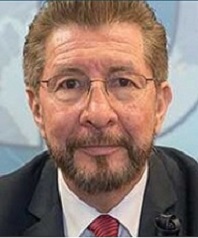 With over 300 political prisoners and without any single essential component of democracy in existence, Bolivia is the “invisible dictatorship” or the “ignored dictatorship” whose tolerance by democracies brings the most grievous consequences for international peace and security. The Bolivian regime is a satellite of the 21st Century Socialism, or Castrochavism, under the command of Cuba also includes Venezuela and Nicaragua, and that has turned Bolivia into a narco-State and the Iranian base against the Americas.
With over 300 political prisoners and without any single essential component of democracy in existence, Bolivia is the “invisible dictatorship” or the “ignored dictatorship” whose tolerance by democracies brings the most grievous consequences for international peace and security. The Bolivian regime is a satellite of the 21st Century Socialism, or Castrochavism, under the command of Cuba also includes Venezuela and Nicaragua, and that has turned Bolivia into a narco-State and the Iranian base against the Americas.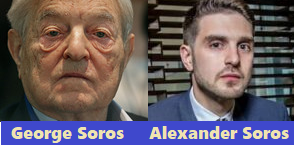
 Se calcula que en los dos últimos períodos electorales George Soros financió las campañas electorales mediante las cuales fueron elegidos unos 75 fiscales "progresistas" en diversas partes de Estados Unidos. Una nueva investigación detalla que Soros, quien también fue fundador de Open Society Foundation, financió Comités de Acción Política (PAC) para promover sus candidaturas e influir dentro del sistema legal estadounidense.
Se calcula que en los dos últimos períodos electorales George Soros financió las campañas electorales mediante las cuales fueron elegidos unos 75 fiscales "progresistas" en diversas partes de Estados Unidos. Una nueva investigación detalla que Soros, quien también fue fundador de Open Society Foundation, financió Comités de Acción Política (PAC) para promover sus candidaturas e influir dentro del sistema legal estadounidense.